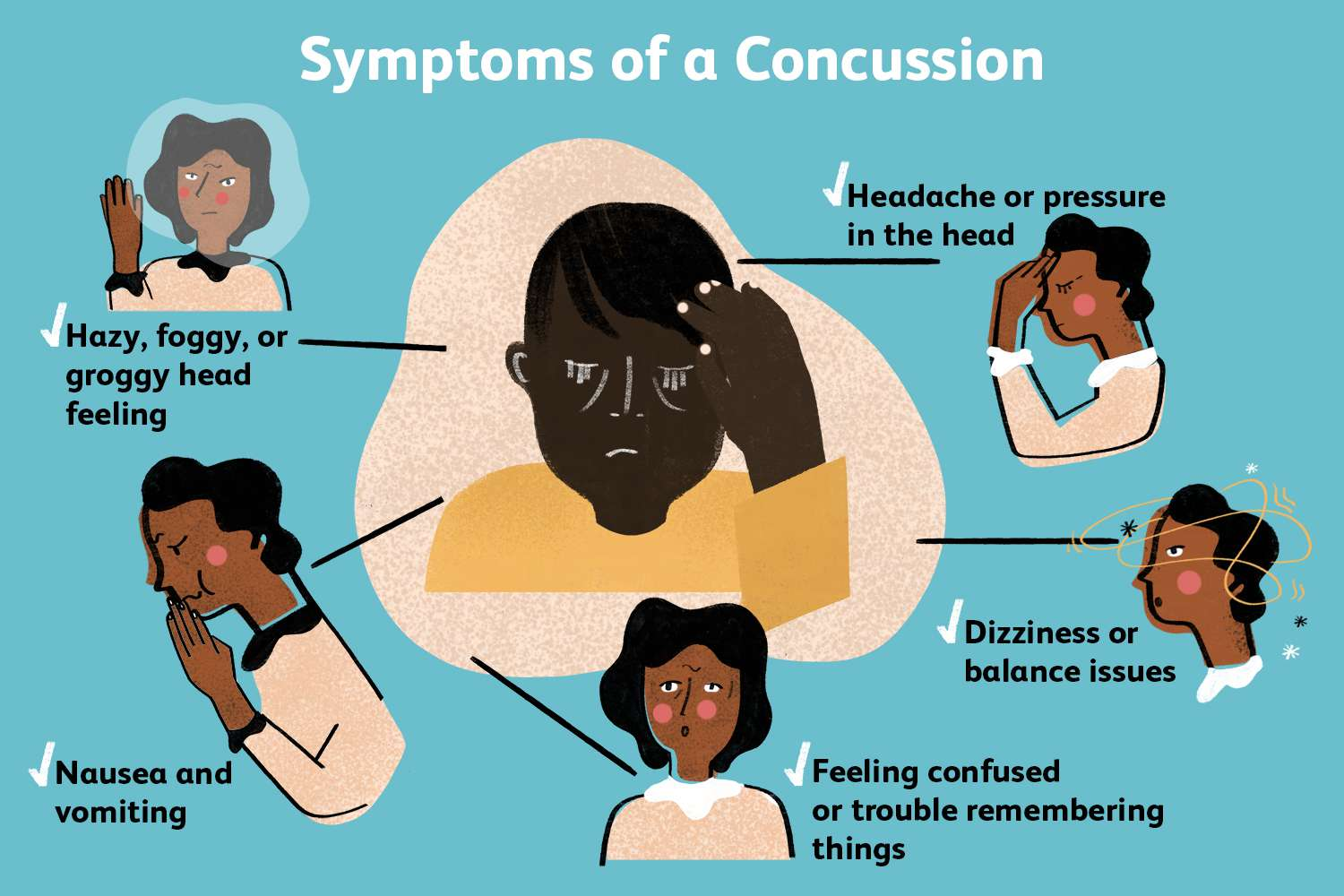Symptoms of a Concussion What You Need to Know (2023)

A concussion is a mild traumatic brain injury that occurs when the brain is shaken inside the skull. It can happen due to a blow to the head, a fall, or any other force that causes the head to move suddenly. Concussions are common, especially in contact sports like football, soccer, and boxing. It’s essential to recognize the signs and symptoms of a concussion, as they can have severe consequences if left untreated. In this article, we’ll discuss the symptoms of a concussion and what you need to know to stay safe and healthy.
Contents
What is a Concussion?
It is a type of brain injury that occurs when the head or body is hit, jolted, or shaken, causing the brain to move rapidly inside the skull. This movement can cause damage to brain cells and disrupt the normal functioning of the brain. Concussions can range from mild to severe, and the symptoms can appear immediately or days after the injury.
Symptoms of a Concussion
The symptoms of it can vary depending on the severity of the injury. Here are some common symptoms:
Read More: 8 Steps To Avoid Being Injured in a Drunk Driving Accident
Physical Symptoms
- Headache or pressure in the head
- Dizziness or loss of balance
- Nausea or vomiting
- Sensitivity to light or noise
- Blurred or double vision
- Ringing in the ears
- Fatigue or drowsiness
- Slurred speech
- Loss of consciousness
Cognitive Symptoms
- Confusion or feeling dazed
- Difficulty concentrating or remembering
- Feeling foggy or groggy
- Slowed thinking or responding
Emotional Symptoms
- Irritability or mood swings
- Sadness or depression
- Anxiety or nervousness
It’s important to note that some symptoms may not appear until hours or even days after the injury. That’s why it’s crucial to monitor your symptoms and seek medical attention if they worsen or don’t improve.
Read More: How Common Are Train Accidents in Pennsylvania (2023)
Treatment for a Concussion
If you suspect that you or someone you know has it, it’s essential to seek medical attention immediately. Treatment for it typically involves rest and avoiding activities that can worsen the symptoms, such as exercise or screen time. The doctor may also prescribe medication to help with symptoms like headaches or nausea.
Prevention of Concussions
While it’s impossible to completely prevent them, there are steps you can take to reduce your risk:
- Wear appropriate safety gear when playing sports or engaging in other activities that could result in a head injury
- Avoid risky behaviors like diving into shallow water or jumping on the bed
- Make sure your home is free of hazards that could cause a fall, such as loose rugs or cluttered pathways
- Follow traffic rules and wear seat belts while driving or riding in a car
Conclusion
They are serious injuries that can have long-term consequences if left untreated. It’s crucial to recognize the symptoms and seek medical attention if you suspect you or someone you know has a concussion. Remember to take steps to reduce your risk of a head injury and stay safe and healthy.
FAQs
- How long does it take to recover from a concussion?
- Recovery time can vary depending on the severity of the concussion, but it typically takes a few days to a few weeks to recover fully.
- Can you die from it?
- While rare, severe concussions can be life-threatening. It’s crucial to seek medical attention immediately if you suspect a concussion.
- Can you have it without losing them?
- Yes, it’s possible to have it without losing consciousness. Other symptoms, like headache, dizziness, or confusion, may indicate it.
- Can you play sports with it?
- No, it’s not safe to play sports with it. You should avoid physical activity and rest until your symptoms have resolved and you have received clearance from a medical professional.
- Can they have long-term effects?
- Yes, It can have long-term effects, such as memory problems, difficulty concentrating, and mood disorders. It’s crucial to seek medical attention if you suspect a concussion to prevent long-term consequences.
